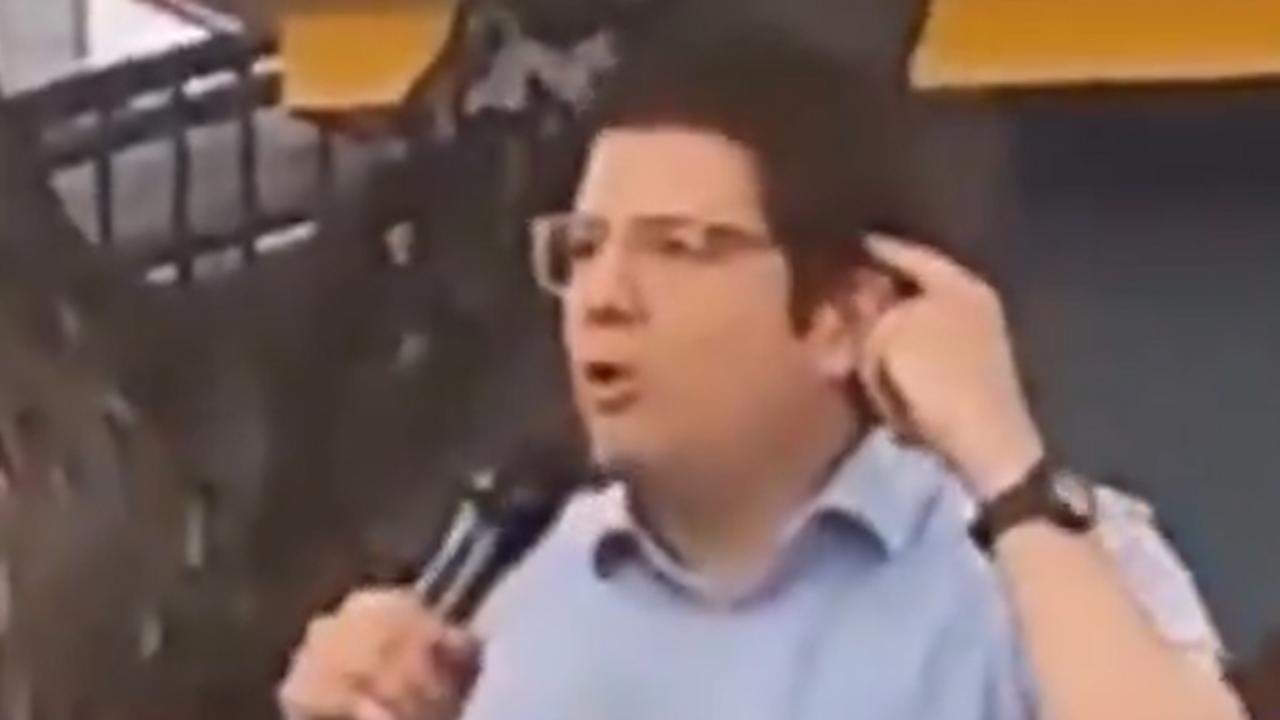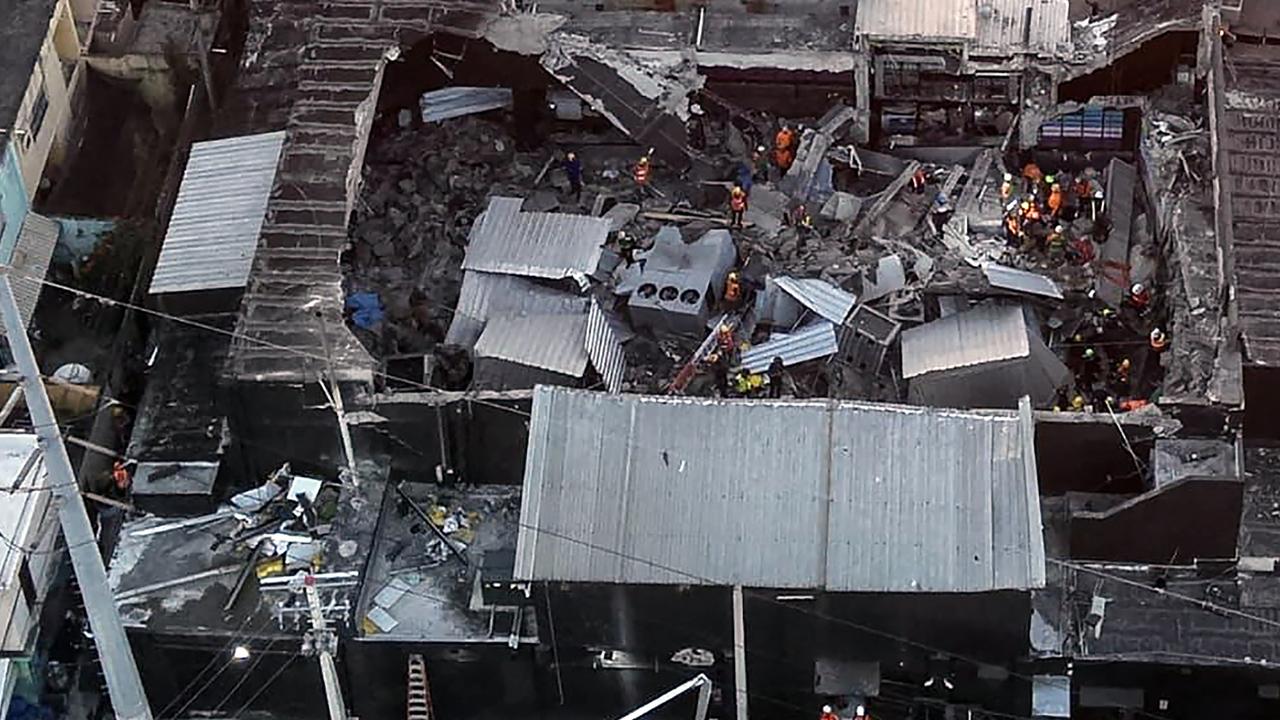Brazil forced to bury COVID-19 dead on streets as cemetery space runs out
A year ago, a cemetery operator in COVID-ravaged Brazil described his “nightmare”. But 12 months later it is worse than he ever imagined.
In April last year, a cemetery operator in COVID-ravaged Brazil described his “nightmare”. Fast forward 12 months and it is much worse.
Last year, at the start of the pandemic, Manual Viana, who looks after the burials of Brazilians at the Nossa Senhora Aparecida cemetery in Manaus, the capital of Amazonas state, described what it was like to have to dig mass graves for those who did not survive the first wave of coronavirus.
“I just wish a helicopter would come and fly me away from here,” he told Washington-based non-profit media company NPR at the time. “We are living through a nightmare.”
He said the use of heavy machinery to dig mass graves capable of holding multiple coffins was “the only option” because it was “humanly impossible” to stay on top of the rising death toll by hand.
Now, 12 months on, pictures from Mr Viana’s cemetery show graves are being dug in streets because there are no remaining plots to bury the dead.
RELATED: Brazil variant hospitalises, kills more young people
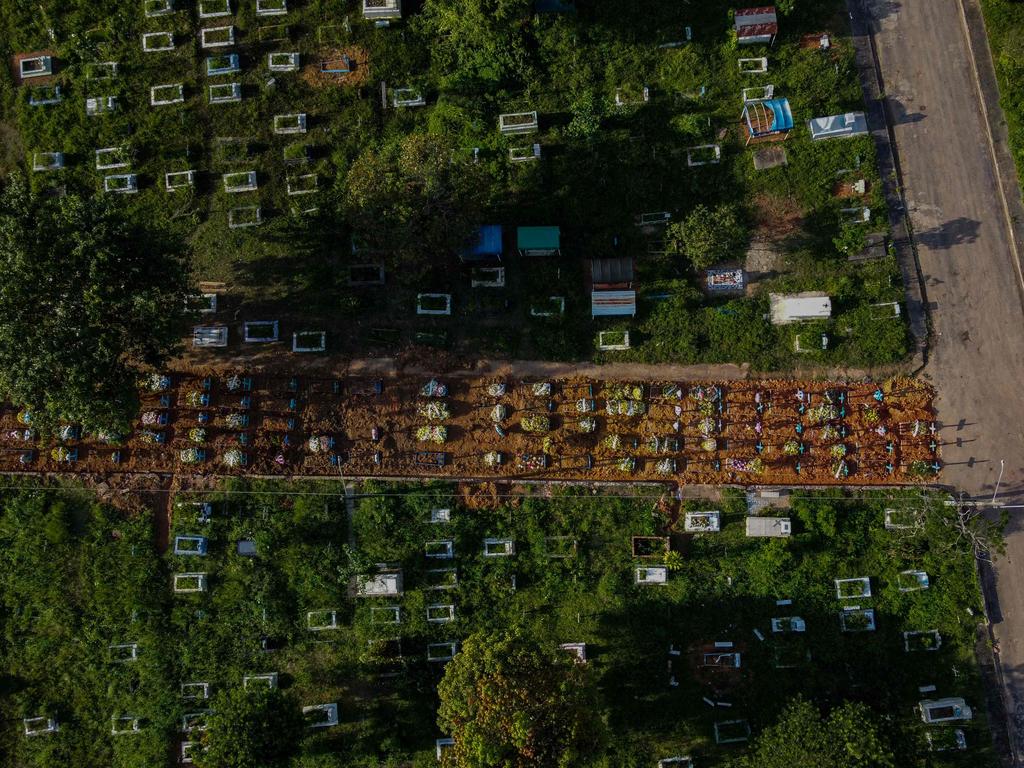
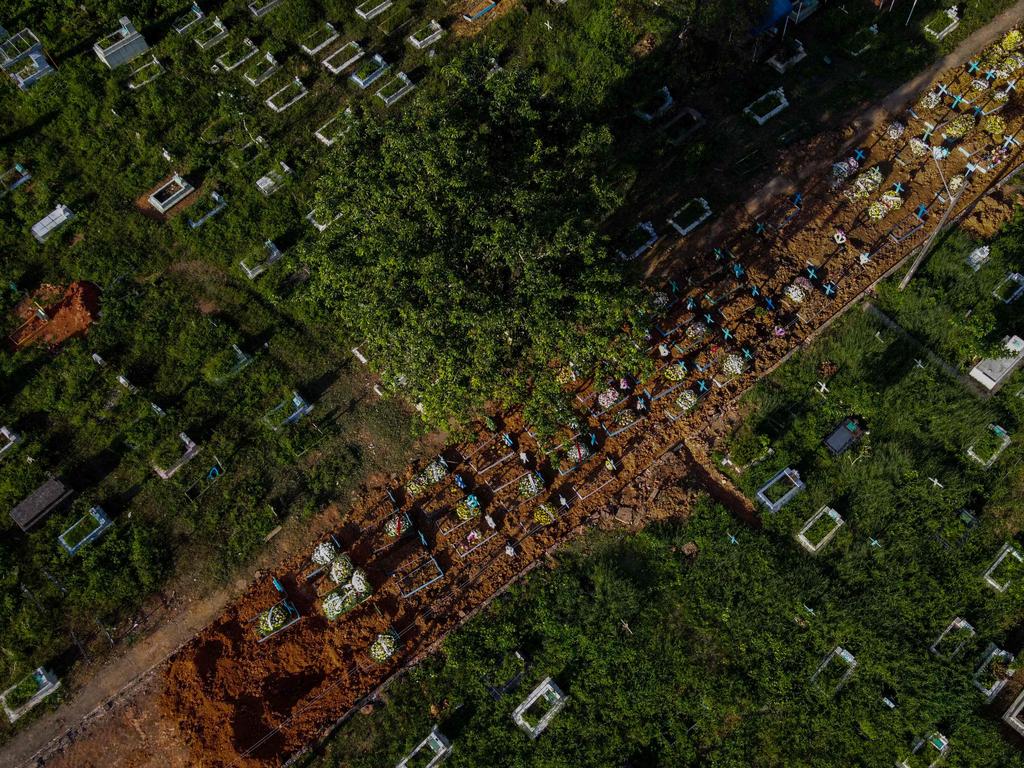
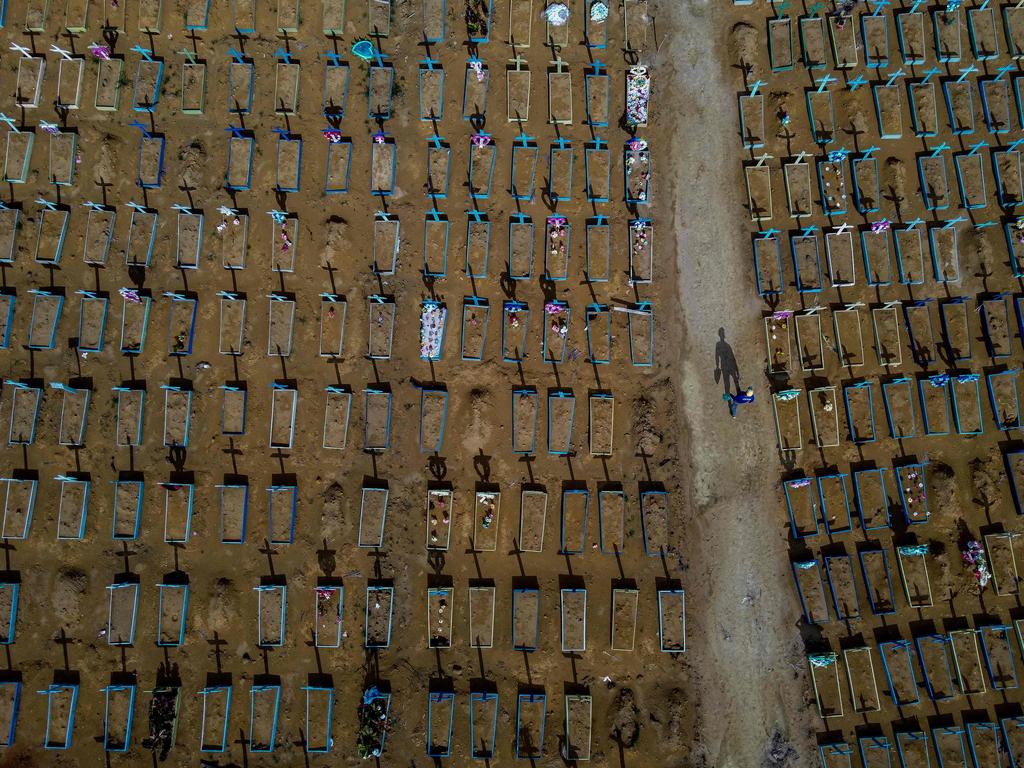
RELATED: ‘Apocalyptic’: Inside India’s COVID nightmare
It is just one sign of Brazil’s ongoing struggle to cope with the pandemic as the country’s death toll surpassed 400,000 on Thursday. It is just the second country to reach the grim milestone after the United States.
Surge in cases pushes health care system to brink of collapse
The country’s health ministry reported 3001 COVID-19 deaths in the past 24 hours, bringing Brazil’s overall toll to 401,186.
With a population of 212 million, the South American nation also has one of the highest mortality rates in the pandemic, at 189 deaths per 100,000 inhabitants – the worst in the Americas and one of the top 15 worldwide.
Brazil has been devastated by a surge in cases since the start of the year that pushed hospitals to the brink of collapse in many areas.
Although it appears to have passed the peak of the new wave, the number of daily deaths remains staggeringly high, at an average of 2526 a day over the past week, behind only India.
Experts blame the latest surge partly on the “Brazil variant” of the virus, a mutation that emerged in or around the city of Manaus in December.
The pandemic has now claimed 400,000 lives in Brazil. About one in every 500 Brazilians has died of covid-19.
— Oliver Stuenkel 🇧🇷 (@OliverStuenkel) April 29, 2021
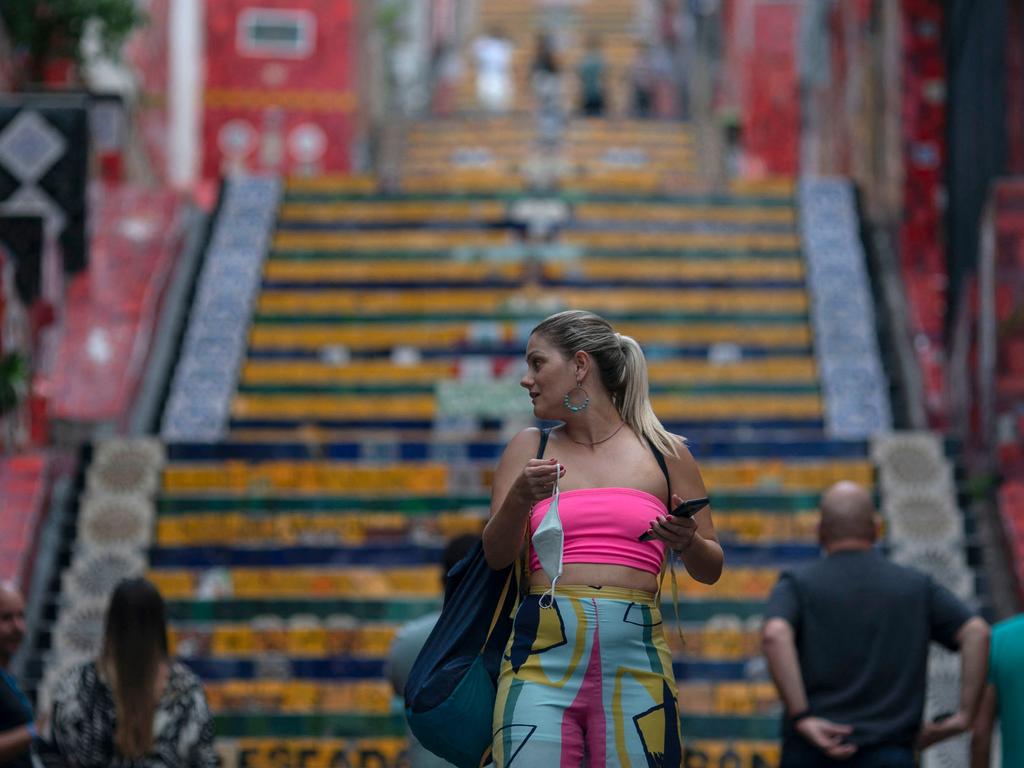
RELATED: Horror images show Brazil on its knees
Known as P1, the variant can reinfect people who have had the original strain of the virus, and may be more contagious.
“P1 has had a very big impact. Nothing was done to contain the variant when there was a spike in January in Manaus. It was only a matter of time before it swept across Brazil,” said epidemiologist Ethel Maciel of Espirito Santo Federal University.
P1 is now circulating in 54 countries, according to the World Health Organisation, which labels it a “variant of concern,” along with the British and South African strains.
Vaccine shortages impact an already struggling nation
The country is meanwhile struggling with vaccine shortages.
Around 28 million people in Brazil have received a first COVID-19 vaccine dose, just over 13 per cent of the population. About 12.7 million have received their second dose.
But cities in 14 of Brazil’s 27 states have had to suspend second doses because of shortages.
In a small piece of good news, the first million doses of the Pfizer vaccine were due to arrive Thursday evening, adding to Brazil’s two current options, the AstraZeneca vaccine and Chinese-developed CoronaVac.
Bolsonaro investigated over handling of health crisis
On Tuesday, the Senate opened an investigation into whether there was criminal neglect in President Jair Bolsonaro’s handling of the pandemic.
The far-right president has controversially downplayed the virus, fought stay-at-home measures to contain it and rejected offers of various vaccines – including, initially, Pfizer’s.
But Mr Bolsonaro refused to accept any blame over the country’s health crisis, telling supporters: “I was wrong about nothing.”
The President argues the economic damage of measures such as a national lockdown would cause more suffering than the virus itself.
But the commission’s rapporteur vowed to hold officials accountable for mishandling the crisis.
Senators will be investigating, among other things, horrific scenes such as those that unfolded earlier this year in Manaus, where dozens of COVID-19 patients suffocated to death due to oxygen shortages.
“The country has the right to know who contributed to these thousands of deaths, and they must be punished immediately,” said the rapporteur, Senator Renan Calheiros.
“There is no statute of limitations on crimes against humanity … We will wage a crusade against this agenda of death.”
– with AFP



